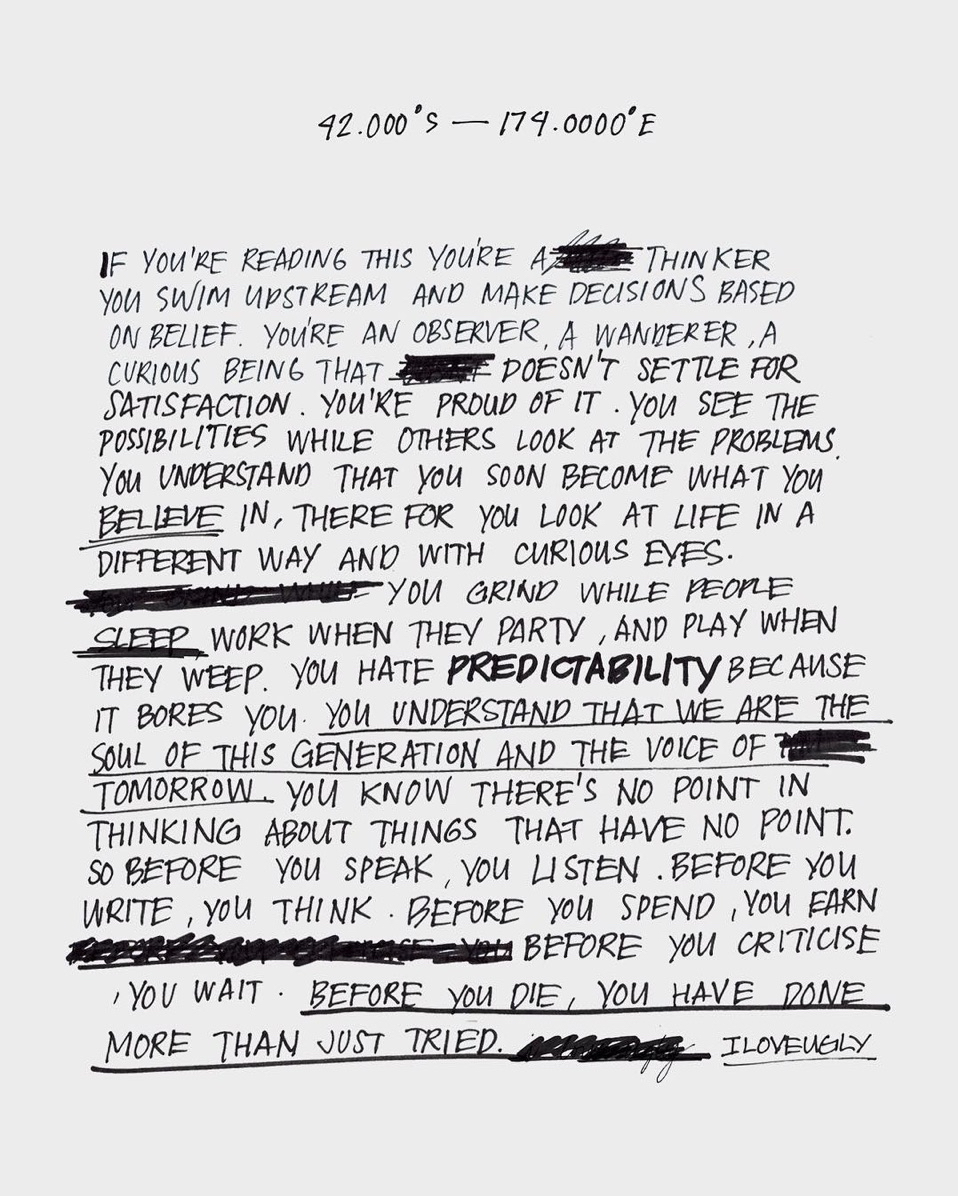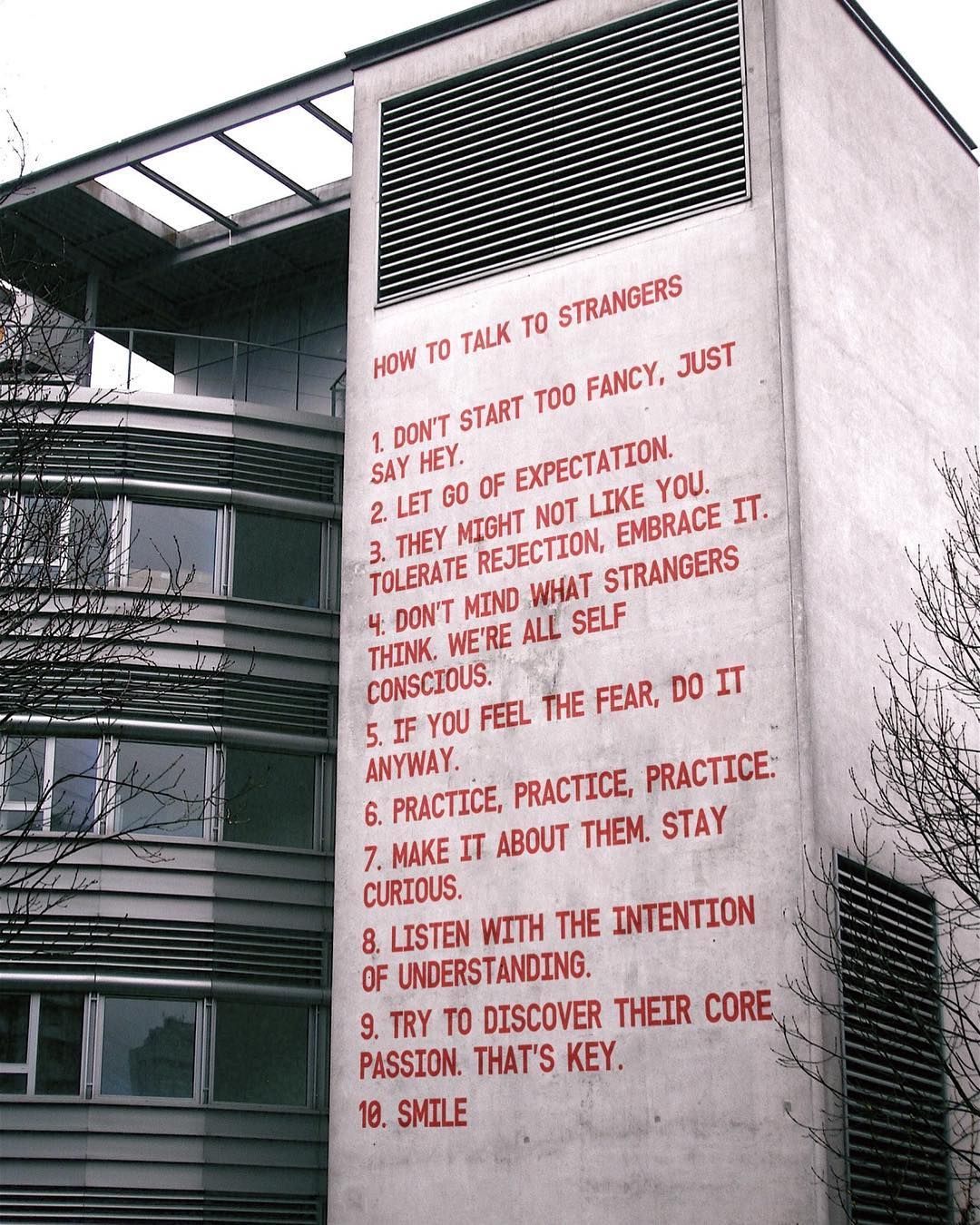Harnessing the power of personality
The most emotive branding I’ve ever seen leapt out at me through the window of a store that I don’t shop at, and never will. It was a manifesto on a wall at I Love Ugly, a Kiwi men’s clothing brand touting ‘quality goods for the independent mind.’
Now, I’m a 25 year old woman with no need for menswear but in an era of fake news and media frenzy, I’ve definitely grown passionate about ‘the independent mind’. I Love Ugly tapped into that passion and then some.

A few carefully worded paragraphs painted a picture of a person who embodies ‘independence’ in the 21st century. Everything from the language to the scribbled, handwritten font evoked emotion. It’s a passage that sounded defiant, proud and gritty. It made the reader feel like a rebel and a changemaker just for understanding it. It was more than a brand communication – to me it felt like a rallying cry. Granted, I still don’t want a wardrobe full of menswear, but to this day I Love Ugly has me hooked on their message and purpose.
So what does this mean for brands?
In these days of ever-smarter data and technology, it’s important not to forget the pure power of emotive branding. In his book ‘Wired to Care’ for example, Jump Industries CEO Dev Patnaik explains that our brains encode emotional memories more forcibly than other data, meaning although rational reasoning (can I afford this product? Will it be useful? Is it high quality?) plays a part in our perception of different brands, our emotional response has a lot more sway.

Emotion also plays a huge part in shaping a brand’s ‘personality’. Not only do emotive campaigns prove more effective for long-term market share growth and brand metrics, studies also suggest that when people can attribute human traits and feelings to a brand, their affection for that brand grows too. Guerrilla poet-turned-brand We Are Not Really Strangers has really tapped into this power, with the intention of bringing more meaningful connections to everyday life.
Aligning personality and purpose
Tapping into emotion and developing a captivating brand personality doesn’t need to be difficult or feel false. Every brand has the capacity to evoke genuine emotion for its customers and audience – whether that emotion is hope, rebellion, inspiration, or even just wry amusement. At Chemistry we believe a brand’s intended personality should be aligned with its enduring purpose. It’s why we dig deep to identify business goals, shared values and positioning during our brand strategy work, often summarising them in the form of a manifesto later on.
Manifestos aren’t the only way to evoke emotion, but when they pull on genuine brand beliefs and thinking we find they’re certainly a force to be reckoned with. A good manifesto acts as a road map internally and externally, authentically representing what your brand stands for, explaining where it’s heading, and appealing to anyone unfamiliar with its mission. It’s emotion distilled and delivered with sincerity. Ours looks like this:

It’s nothing like I Love Ugly, but it is up on the wall, reminding us what we’re about and evoking emotion for anyone who walks through our door. In crafting our own manifesto, we’ve embraced the power of emotive brand storytelling and refined our ability to explore it for clients too. It’s a good feeling – and as it turns out, that really is what it’s all about.
